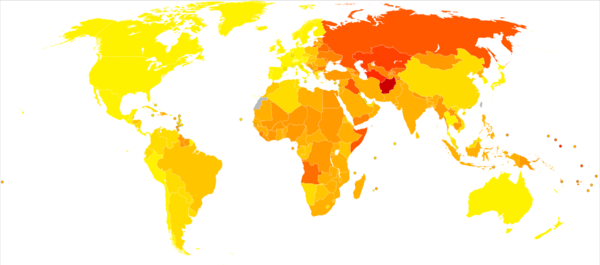A study conducted by Dr. Robert Hutchins, resident physician at the University of California San Francisco Department of Medicine, and colleagues from the University of North Carolina at Chapel Hill found that 33 percent of people in the United States would rather die early than take a daily pill to treat a heart condition. Twenty-one percent of the 1,000 people surveyed in the study would pay $1,000 to keep from taking a pill that prolonged their life. The research was presented in the edition of the journal Circulation: Cardiovascular Quality and Outcomes.
The purpose of the study was to determine the level of inconvenience that a representative sample of people in the United States was willing to put up with in order to live longer. Inconvenience was defined as getting a prescription, buying the drug, and remembering to take the drug every day. The efficacy of taking the drug daily was shown to be 99 percent effective in preventing death. The participants were aware of the health benefits of taking aspirin or a statin to prevent death from heart disease before they took the survey.
Paying for the medication and suffering from any side effects were not a consideration in the participant’s decision not to take a drug once a day in order to live longer. This was the largest study to date that addressed the inherent dislike of daily medication for cardiovascular disease. One goal of the study was to find a different means of treating people that did not involve daily medication. The study was done prior to President Obama’s announcement of his Precision Medicine Initiative that would involve much more than taking a pill.















